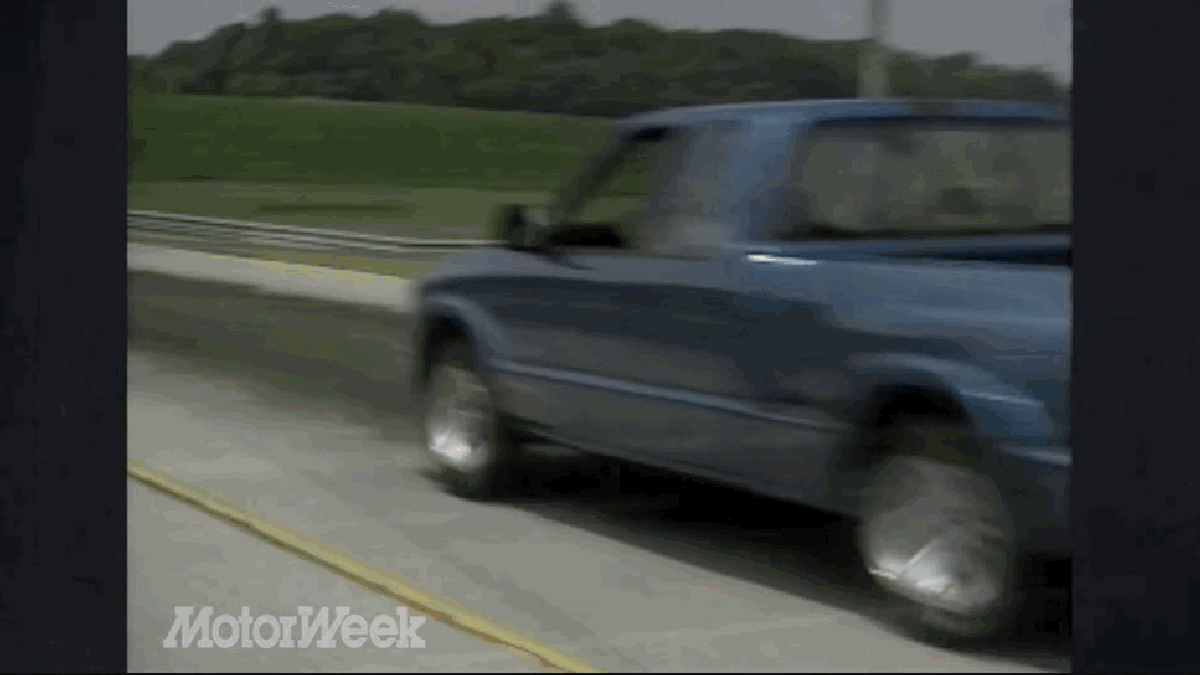MotorWeek’s Retro Reviews is some of the best car content on the internet. The long-running automotive news magazine has a treasure trove of tests after being on the air for over 40 years. Where else can you find detailed instrumented testing of long-forgotten cars like the 1995 Ford Contour or a 1991 Buick Regal Gran Sport?
MotorWeek’s recent Retro Review upload is of the 1997 Chevy S-10 extended cab. The second generation of GM’s mid-size pickups, the Chevy S-10 and its GMC Sonoma sibling had been recently redesigned in 1994 after going unchanged since their introduction in 1982. The biggest change came in an extended cab, a three-door configuration that MotorWeek tested here.
GM extended the cab, allowing for just over 17 cubic feet of storage space behind the rear seats. The downside to this setup was the three-door configuration, with the extra door only being on the driver’s side. This configuration also did away with one of the dual rear jump seats, something GM says was done in the name of safety.
The S-10’s track performance was surprising, but not in the way you’d think. This is by no means a performance vehicle; power came from Chevy’s 4.3-liter Vortec V6 with 180 horsepower and 240 lb-ft of torque routed through a four-speed automatic transmission to the rear wheels. The surprise came when MotorWeek did their braking test.
Mind you, the S-10 performed horribly in its braking test. The S-10 averaged 150 feet from 60 mph in three separate braking tests. The worst part came after the third test. MotorWeek says the S-10’s four-wheel antilock braking system failed, resulting in the disastrous GIF you see above. John Davis mentions that both the truck’s test driver and videographer had an “anxious” moment. Luckily this was done in a controlled setting, as it could have been dangerous out on the open road. Strangely, Davis says the failure of the system never happened again during the truck’s two-week stay, even after a visit to dealer service.
Vehicle technology and driver safety systems have come a long way in the last 27 years since the test. This truck’s failure though is a stark reminder that at despite technology, cars are still machines that can have any part of them fail at any given time for no reason.

